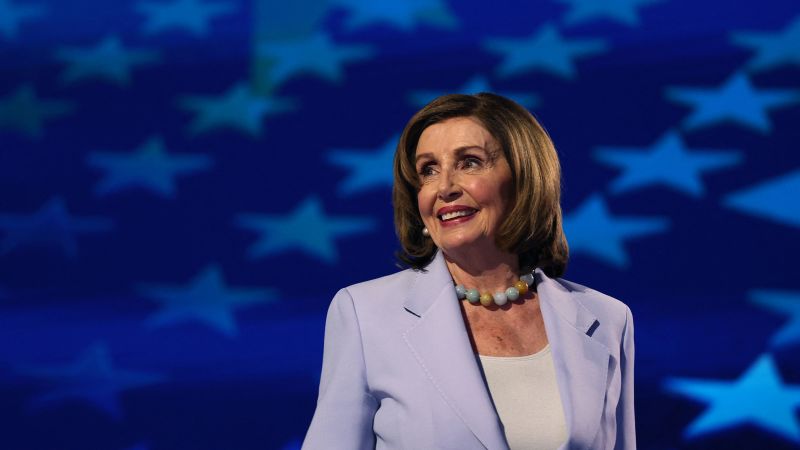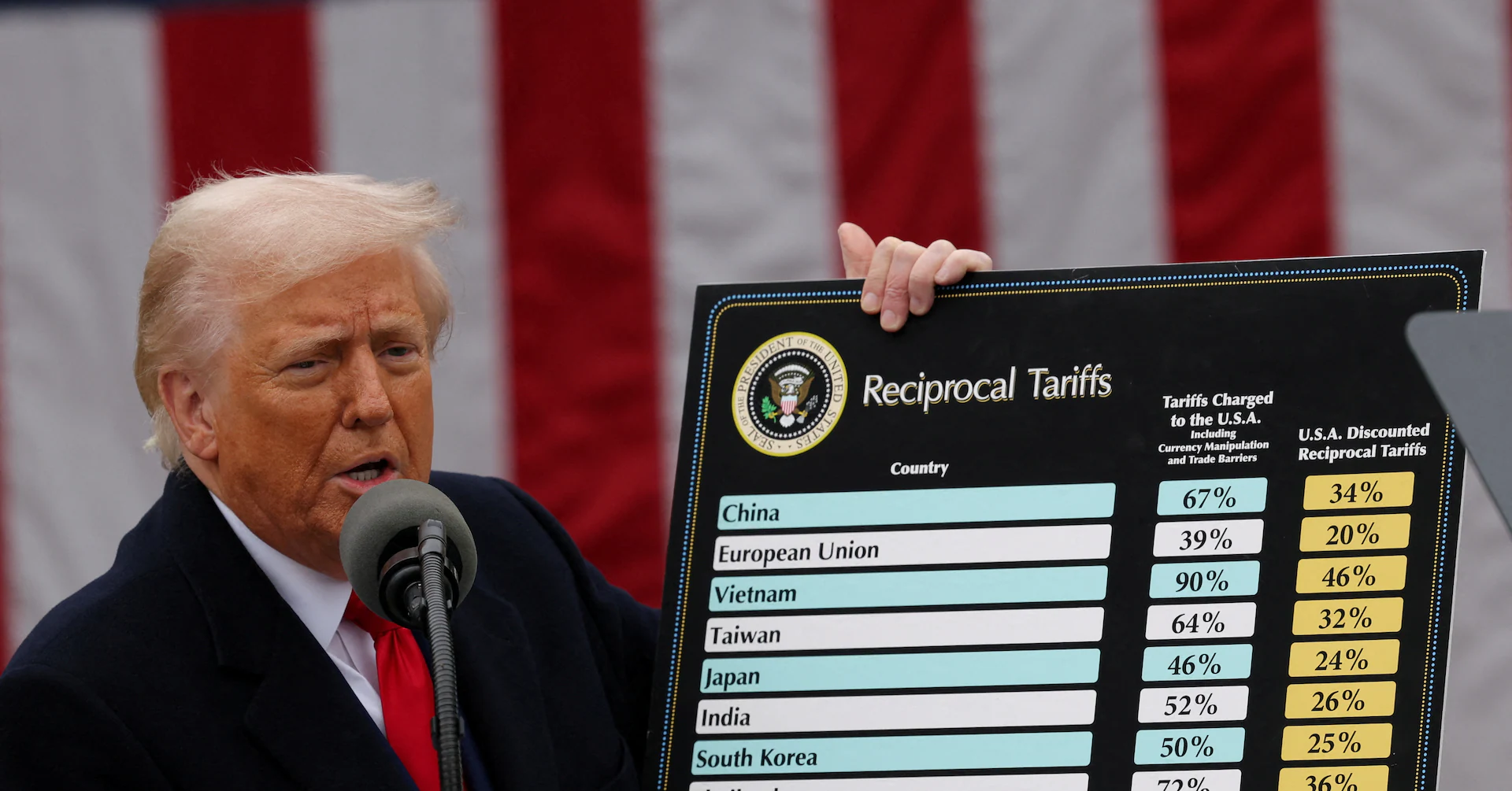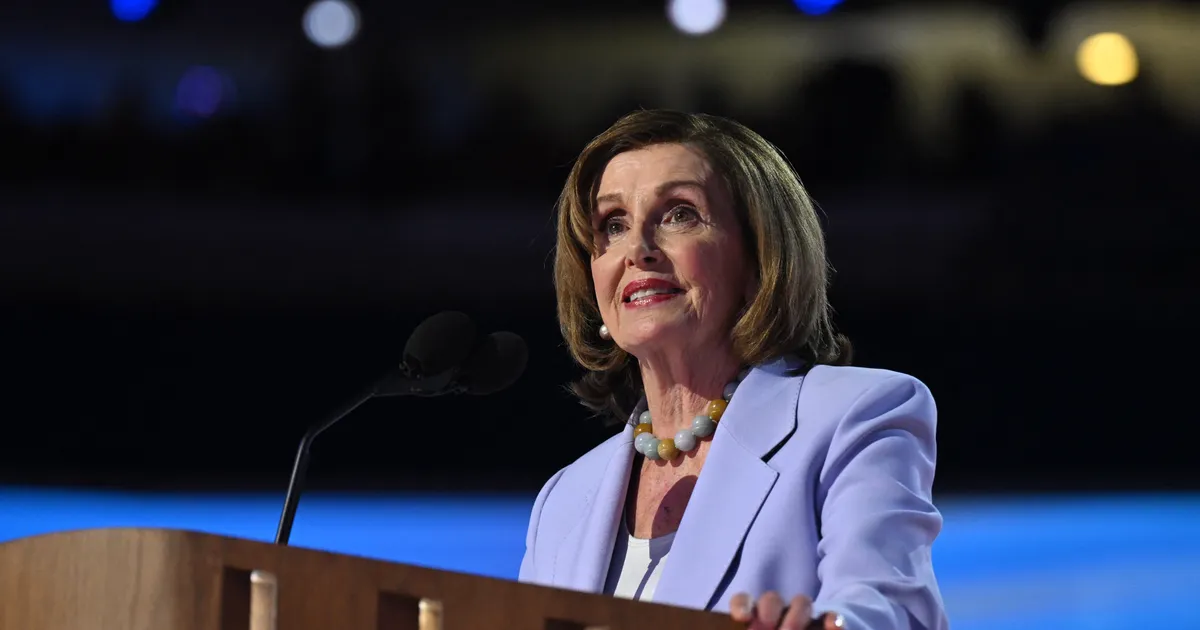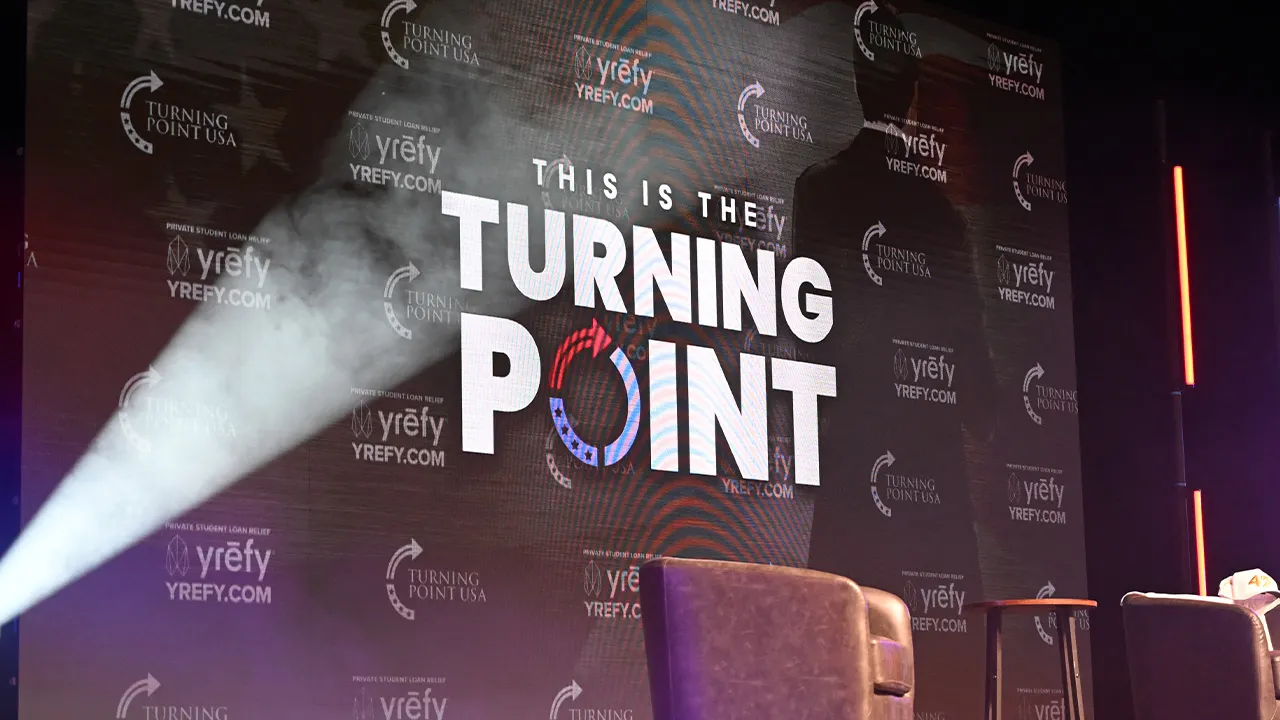Copyright independent
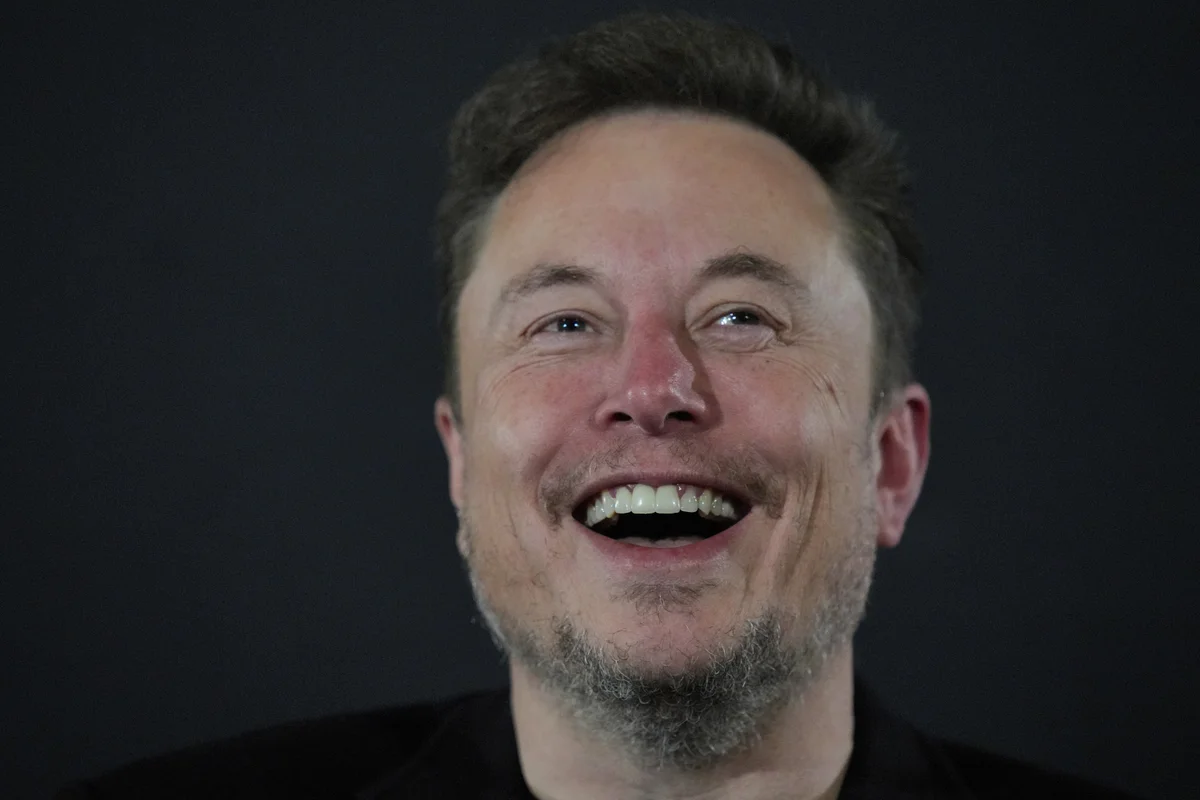
$1,000,000,000,000 This is a trillion dollars. It's a one followed by twelve zeroes. A stratospheric amount of money, unbelievable even. But it's no longer a fantasy for Elon Musk, who has just finagled a new compensation plan from Tesla. Musk, the chief executive and 12.8% owner of Tesla, will receive a package worth nearly US$1 trillion over the next 10 years. "I super appreciate it," he told the meeting. Musk's personal wealth has already surpassed an eye-watering US$500 billion. So, how much is a trillion dollars? US$806 billion GDP Switzerland is one of the richest countries in the world and home to 106 billioniares. Its 2024 GDP is less than US$1 trillion. One trillion dollars is equal to the total wealth of 9 million typical American households. For reference the total population of Chicago is only 2.7 million. The United States Bullion Depository at Fort Knox houses 4,175 tonnes of gold. With a trillion dollars you could buy almost twice that much. One trillion dollars would fund NASA’s total budget for 40 years. If you’d parked a trillion dollars in a standard savings account you would get roughly $1,622 every second. But Musk is not alone in this gilded wealth race. At current trends, projections suggest that within the next decade the world will be home to at least five trillionaires. Elon Musk became a half trillionaire at exactly 3:30 p.m. in New York on 1 October 2025, driven by a 4% surge in Tesla’s share price that added over US$9 billion (A$13.87 billion) in a single day. His fortune comes from a 12% stake in Tesla, 42% of aerospace company SpaceX, and ownership of X, the social media platform he acquired as Twitter in 2022 for $44 billion. He later merged X with his AI start-up xAI, valuing the combined business at US$113 billion (A$174.21 billion). He also has financial interests in Neuralink and The Boring Company. So, is this fictional money? After all, much of it is tied up in volatile company stock. No, Musk’s wealth is real in two key ways. First, public shares have tangible financial value. They represent ownership in a business and can be bought or sold. Even when restricted, such as in superannuation funds, they remain valuable assets. Musk can still spend big when he wants to. For example when he bought Twitter for US$44 billion in 2022, he personally put in more than US$27 billion in cash. Most of that came from him selling US$15.5 billion worth of his Tesla shares, and the rest was from a loan against his remaining equity in Tesla. Second, wealth equals power. Whether Musk is worth billions or half a trillion, it makes little material difference to his lifestyle. What matters is the influence such wealth affords. Musk has acknowledged this. Seeking shareholder support for a record-breaking compensation package, he posted on X: "It’s not about 'compensation', but about me having enough influence over Tesla". More significantly, Musk has used his wealth to gain political influence. He spent more than US$250 million (A$385.4 million) supporting Donald Trump’s 2024 presidential campaign, securing immense sway over the American political agenda. Elon Musk speaks live via a video transmission during the campaign of the far-right Alternative for Germany (AfD) party in Halle, Germany. He has also backed other right-wing populists globally. In the UK, Musk has publicly supported Tommy Robinson, a far-right activist known for anti-Islam and anti-immigration views. In Germany, Musk has openly endorsed the far-right Alternative für Deutschland (AfD) party. Musk’s political activism places him among a growing class of billionaires reshaping the world in their own image. The 21st century has seen a surge in large-scale philanthropy, with the world’s wealthiest channelling fortunes into charitable foundations, public initiatives, and political advocacy. In the US alone, charitable donations exceeded US$16 billion (A$24.67 billion) last year. The single largest donor was Michael Bloomberg who gave US$3.7 billion (A$5.70 billion) to causes including the arts, education, public health, and social justice. He was one of six individuals who donated over a billion dollars in 2024. There are now 3,028 billionaires, with three worth over US$200 billion. This generosity masks a deeper reality. Billionaires typically donate only a fraction of their wealth, which continues to grow. In 2010, Gates and Buffett launched The Giving Pledge, urging billionaires to donate most of their wealth. But of the 57 original US signatories, 32 remain billionaires, and their combined wealth has grown by 283%. When Donald Trump withdrew the US from the World Health Organization (WHO), the Gates Foundation became its top donor, contributing US$689 million (A$1.06 billion) over two years. Gates has since faced criticism for steering WHO toward projects he personally favours. Whether it’s Gates shaping global health or Musk influencing politics, their power stems not from democratic mandate but from wealth. In a world increasingly under the sway by billionaires, the public good risks being defined by private interests, without oversight, accountability, or consent. This isn't the first time this has happened. In the ‘gilded age’ of the late 19th century, industrialists like Andrew Carnegie, John D. Rockefeller, and Meyer Guggenheim used their fortunes to establish institutions like universities, museums, hospitals, and libraries. Their aim was to make education and cultural enrichment accessible to working-class Americans. It did nothing to change economic inequality and the dynasties of extreme wealth created by industrialisation live on to this day. Today’s billionaires might be interested in different causes, but the result is the same: billionaire power escalates while the vast economic inequality that their wealth represents remains entirely unchanged. Australia is not immune to the global billionaire phenomenon. In 2025, 161 Australians had amassed fortunes exceeding A$1 billion, double the number from ten years earlier. The top ten Australian billionaires Gina Rinehart Harry Triguboff Anthony Pratt Scott Farquhar Clive Palmer Melanie Perkins & Cliff Obrecht Michael Dorrell Ivan Glasenberg Nicola Forrest Kerry Stokes Topping the list is iron ore magnate Gina Rinehart (A$38.11 billion), followed by property tycoon Harry Triguboff (A$29.65 billion), and packaging and recycling mogul Anthony Pratt (A$25.84 billion). Many billionaires choose to be discrete, avoiding drawing attention to themselves and their extreme wealth. Some focus solely on business and others value personal privacy. They may even want to steer attention away from their financial affairs. Discretion is not universal, however. Like their US counterparts, Aussie billionaires are increasingly active in politics. Clive Palmer spent an estimated A$160 million on federal campaigns, backing the United Australia Party in 2022 and the Trumpet for Patriots Party in 2025. Both pushed right-wing populist agendas but failed to win seats in the lower house. Gina Rinehart has also sought to influence politics, urging the Liberal Party to adopt Trump-inspired policies and donating A$500 million to the party in 2024. In Australia and around the world, the number of billionaires and their political ambitions are growing. Today, the world’s richest 1% own more wealth than the bottom 95% combined. In Australia, poverty rates soared to 14.2% this year as the wealth of the fifty richest Australians increased by A$243 billion. It is not fair and it is not democratic. The top 500 controls over $373 billion in net assets and contributes over $13 billion in income tax and GST each year. The average age is 72 and the average wealth is over $300 million. Deepening inequality has sparked growing calls for reform. Activist groups like The Fight Inequality Alliance and The Tax Justice Network are demanding action. Governments are beginning to take notice. At the 2024 G20 Summit, world leaders endorsed a minimum tax rate for billionaires. A similar initiative was launched at the UN’s Financing for Development conference in July. The world has clearly awakened to the vast disparities in wealth and power represented by the billionaire class. The solutions – progressive taxation, corporate accountability, and reinvestment in public goods – are not mysteries. They are political choices. What remains is for nations around the world to choose courage over complacency, and justice over inertia. Because until they do, inequality - in both wealth and power - will not just persist, it will define the future.
